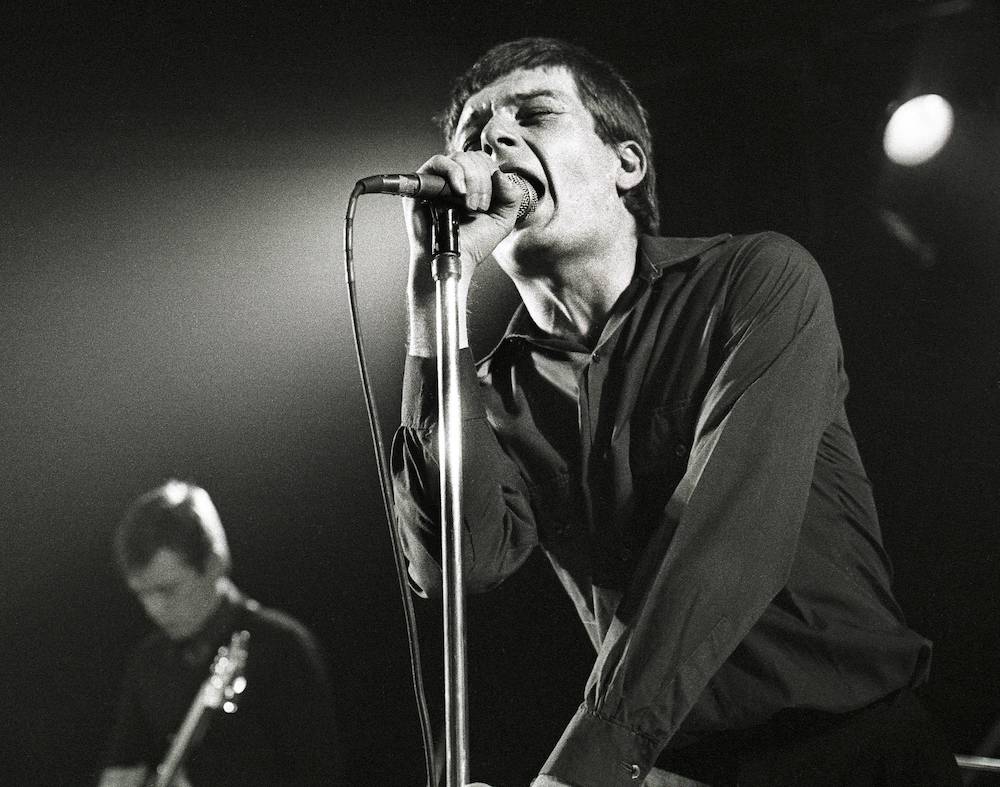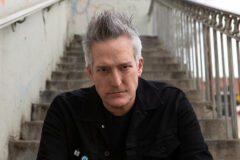On the morning of May 18, 1980 — well before daybreak — Ian Curtis died by suicide, one day before the groundbreaking band he fronted — English post-punk pioneers Joy Division—was scheduled to board a transatlantic flight to the states for the start of their first North American tour. Curtis, 23, hung himself in the kitchen of his Macclesfield, U.K. home, exactly two months to the day before the eventual release of Joy Division’s second LP, Closer — their follow-up to 1979’s debut Unknown Pleasures.
Joy Division wouldn’t survive Curtis’ death, the culmination of his depression with his chronic epilepsy worsening and his marriage falling apart. Merely four years after forming, Joy Division’s surviving members closed the books on the band and subsequently metamorphosed into synth-pop pioneers New Order. Despite releasing only two studio albums and a mere barrage of posthumous demos, Joy Division influenced an entire generation of musicians — a legacy that endures even today, 40 years after losing their singer.
Countless musicians — including innovative rockers, such as Radiohead and Nine Inch Nails and even hip-hop icons like Lupe Fiasco and Tyler, the Creator — have cited the brooding, introspective, evocative songs of Joy Division as a salient influence on their own tunes. (Danny Brown named his 2016 album Atrocity Exhibition after Closer‘s famous opening song.) Curtis’ unique, somber, swaggering voice and astonishingly emotive lyrics perfectly complemented Peter Hook’s throbbing bass lines, Bernard Sumner’s spacious guitars and atmospheric keys, and Stephen Morris’ bombastic, thumping drums, all creating something novel and sempiternal — something timeless.
To celebrate Curtis’ lasting memory and his stunning contributions to the music world, SPIN reached out to a number of musicians — including one of his former bandmates — for thoughts, insights, and impressions on Joy Division’s overall impact, as well as Curtis’ immense talent. The following reflections are in their own words.
Peter Hook
Founding bassist, Joy Division and New Order
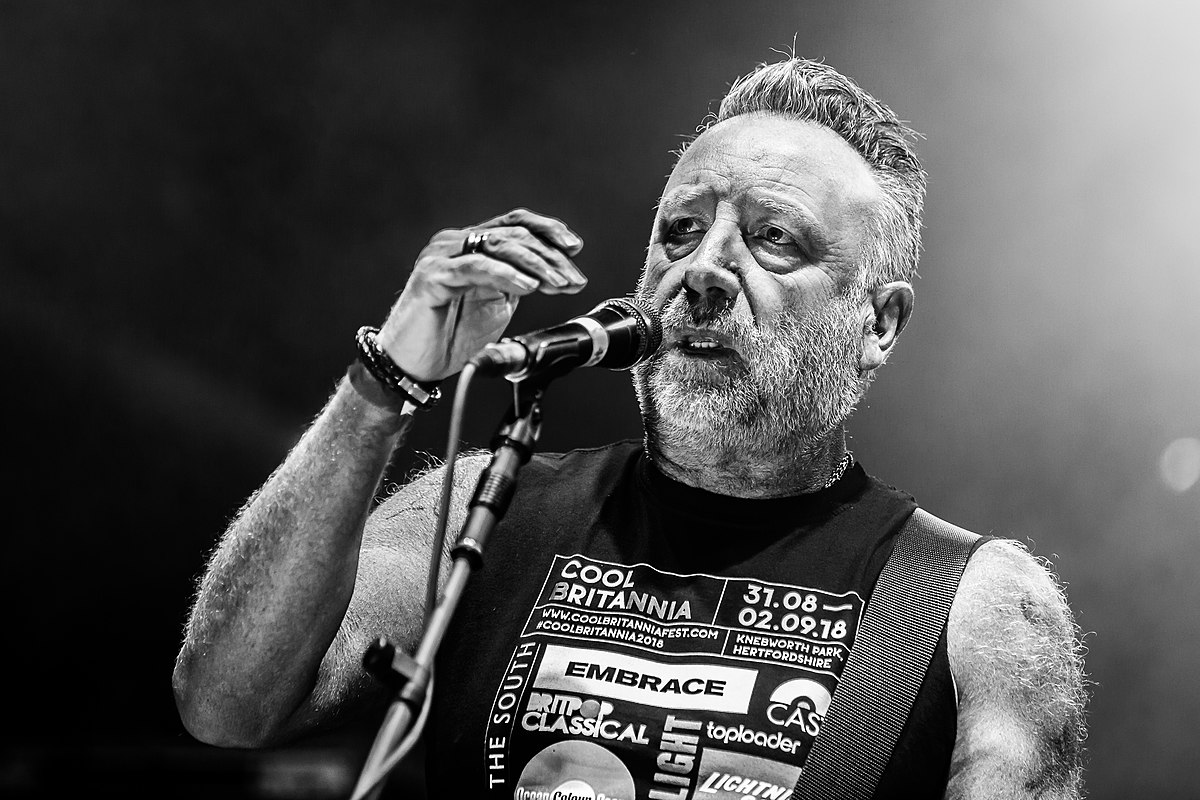
Ian was very, very serious as a musician. The most serious and intense and passionate man about the band. But outside of that, he was absolutely very chameleon-like in that he could mix and talk to anybody. Very, very accommodating and very, very nice. The only time I’d ever seen him get angry was when he was drunk. As a bandmate, he was perfect because he was so serious, he was so interested, and he was a great fan of Joy Division. He was probably the biggest fan of Joy Division of all of us.
Any time that we started to feel a little overwhelmed, shall we say — the fact that we were going nowhere, or the frustrations involved—he would always be the one to grab hold of you, and go, “Don’t worry, we’re gonna be massive. We’re going to tour America, we’re going to be touring Brazil,” and la di da di da. The thing about Joy Division was it was actually quite pure, and it was a very rock-and-roll ending, which people like, sadly.
The members of Joy Division were never around to sully Joy Division’s memory — say, for instance, in the way we have New Order’s. Very self-destructive and its really, in my opinion, it’s really fucked New Order up for all our fans. The arguments between us. But luckily, we didn’t have those arguments in Joy Division, so it’s kept it a very underground, very cult-like group. The thing is, we never achieved any sort of success while we wrote all our music. When “Love Will Tear Us Apart” was a hit, the group didn’t exist. It had gone. So, it is a very unusual situation. If you look at, like, the way the Doors have an impact, and Iggy Pop and the Stooges … they actually played for a long time and achieved a lot of success. And Joy Division never achieved anything, particularly, while they were functioning as a group. In a funny way, I suppose, that that worked for us, in keeping the memory pure and keeping it alive.
The music is fantastic, even if I say so myself. People use it as a template for post-punk rock, and the music, it really belied our age, considering we were 20 when Unknown Pleasures was released. There aren’t many 20-year-old groups that I can quote that have made an album as serious and as moving and as archetypal as Unknown Pleasures. You know, we were idiots, making fantastic music and Martin Hannett was more than happy to tell us. You know, “You’re fucking idiots. How you make this music is beyond me.”
In a way, that was part of the lightness of Joy Division, was that we weren’t precious about the music—we were giving tracks away. “Digital” and “Glass” went on the Factory sample. Never released. We didn’t bother. Gave “Atmosphere” away. Gave “Autosuggestion,” “From Safety to Where” away. We didn’t release “Digital” as a single, as we should have. We just didn’t care. We were happy and had the strength to know that, every time we got together, we would write another song. It was that subconscious strength that was incredible and enabled us to be very flippant in what we did with the songs. It was nuts. We gave “Dead Souls” away. It was like, “Yeah? Really?” “Don’t worry about it we’ll just write another one.”
Joy Division were writing a song a week, and nothing was a strain. It was easy. Joy Division was the easiest band for writing I’ve ever been in. I’ve never been in any easier group to write. New Order was fucking murder. Freebass, murder. Revenge, murder. Monaco, murder. You know, Joy Division, fucking dead easy. Bastard! Typical, isn’t it? You find something that great … and what was interesting, from a writing point of view, was each member wrote completely individually of all the other members, and yet, when you put it all together, it was incredible—a strong, perfect fit. It was amazing. We couldn’t believe the difference when we got to New Order. It’s mind-blowing.
[Ian’s] grand mals were becoming debilitating. He was having to be carried off stage. Literally, I would have to sit on him for an hour, holding his tongue, until he stopped fitting. The longest one he had was an hour, which was in Brighton. And as soon as he’d recover, he’d just shrug it off, and go, “Don’t worry, stop worrying about me. Everything’s fine. Get on with it.” And we’d be like, “Wow.” It’s a mind fuck. This guy was on the floor, he couldn’t speak, he couldn’t stop shaking … and now, he’s there telling us he’s alright. He would never, ever, ever stop. Just kept going. Ignored it as much as he could. He never wanted to let you know. It wasn’t him who’d cancel the gigs when we had to cancel them. It was everybody else. “You can’t do it, Ian. You’ve got to stop.” “No, no, we’ll be alright, don’t stop.”
Ian was actually quite normal. Bernard and I were really bad [with pranks]. I mean, we did it all the fucking time, and the more cruel and awful they were, the better. We had grown up with that. It’s a Northern English thing, and Ian joined in it. He wasn’t like that before we met him, but when we met him, and took him on board, he became just like us. We would play jokes … mad, crazy shit, all the time. And when [Ian’s girlfriend] Annik [Honoré] appeared, he went back to boyfriend mode, so he didn’t do it, and would get upset when Bernard and I did it. He was great fun to be with, and he was always trustworthy.
That golden period—when he was well and the band were together—and nothing got in the way, it was probably the best time of my life, to be honest. It’s the best time I’ve had in a group. I’ve not been in a group like Joy Division since, and it’s always lacked something and been much more difficult to be in than Joy Division was.
He was great to have in your corner as a group. Whenever you got down or whenever you got upset, it would always be him who’d pick you up by the scruff of your neck, and be like, “Come on!” He was fantastic at that and also, he was very funny. He was very easy to be with and he didn’t mind taking the piss out of himself, which was one of the good things. He was a great character. I think that sometimes his frustrations would get the better of him, especially when he was drunk. But for the most part, I remember him as a fond friend and definitely a very fond work colleague. Every time I hear a Joy Division track, I fucking miss him. I miss him like crazy. Because music used to be so easy. And now, it’s a lot more difficult without him. Even though you’ve achieved and you’ve moved on, you know those wonderful days of sitting there, in a practice room, freezing your bullocks off, coming up with “Twenty Four Hours” or “Insight” or “Shadowplay” or “Love Will Tear Us Apart” or “Atmosphere” or “Dead Souls,” these songs that have shaped music and still shape music now … to us, we were just knocking ‘em out, in a freezing cold rehearsal room, where we’d write great music together, the three of us, and then Ian would get an old shitty plastic bag, full of bits of paper, and he’d get one out and read it and it’d be “Isolation.” He’d get another one out and read it, and it’d be “She’s Lost Control,” and you’d be like, “Fucking hell, is he for real?”
My memories of him are extremely fond and I take great delight actually in going up to see him, I take great delight in celebrating his life’s work. Music like that is bigger than all of us. It will outlive me, it will outlive you, it has outlived Ian, and it is a wonderful position to be in, to be so proud of something that actually is so pure, in a way. I am not proud of New Order; we made some great songs, but I think their behavior has been unbelievably nasty towards each other. I think it spoiled everything for a great many, many people. And really, I am so happy we didn’t manage to do that to Joy Division. That makes me very, very happy indeed, for Ian, more than anything.
Moby
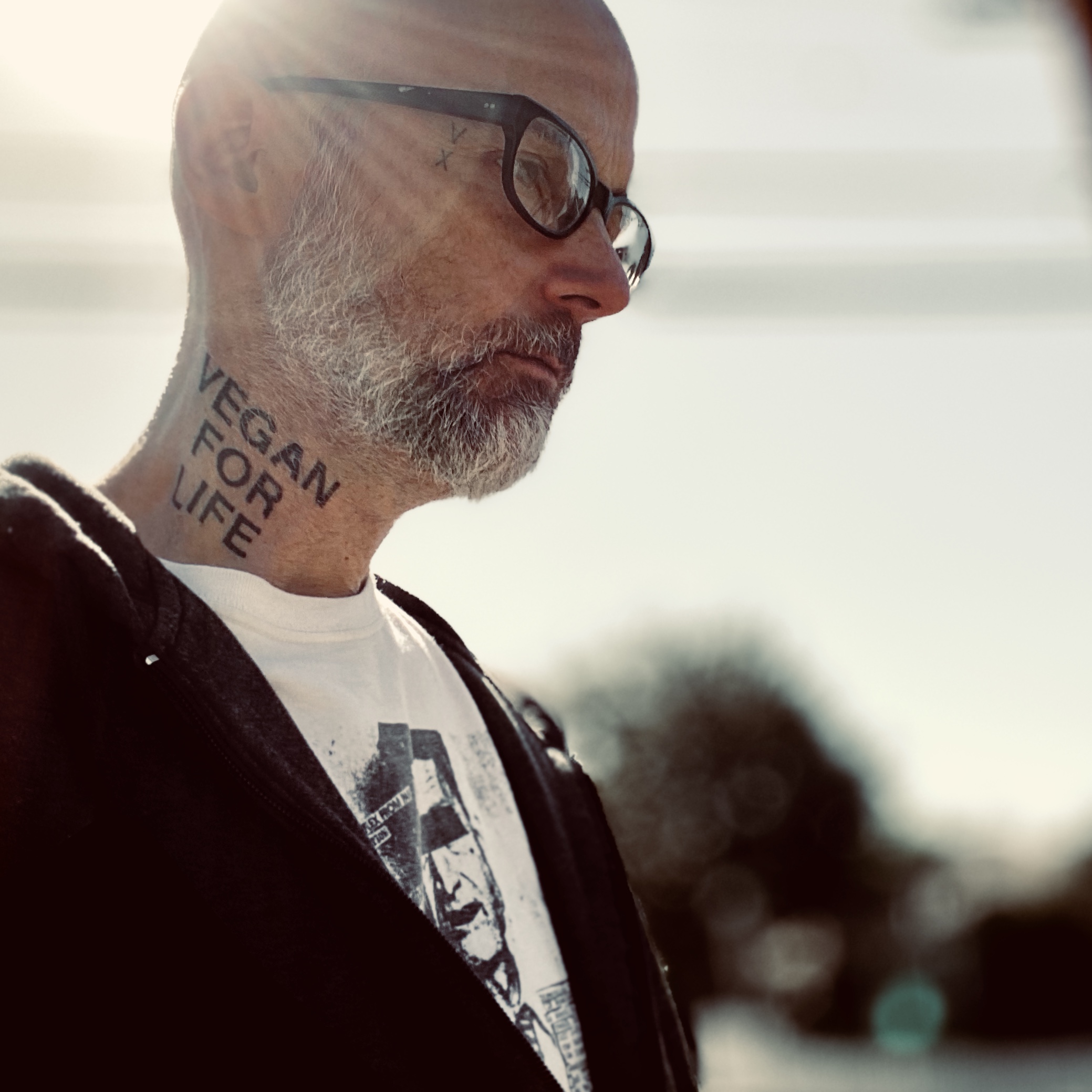
Joy Division inspired me in so many ways. My top 3 influences would probably be Brian Eno, David Bowie and Joy Division — possibly Joy Division/New Order. The influence is ongoing and broad. Back in 1980 or ‘81, I had a few friends, and we were all sort of admitting to each other we liked new wave and punk rock because that was still sort of a dirty, embarrassing secret at the time. My friend Dave, his family had a little more money than the rest of us, so he could actually afford to buy albums, and one day, somehow, he came back from New York City with three records, and one of them was Joy Division’s Closer. The first song I heard was “Atrocity Exhibition” and I didn’t love it. I remember he had the first Devo and the first Gang of Four record, too, and I was way more excited by Devo and Gang of Four, based solely on hearing “Atrocity Exhibition.” Between me and my friends, all totaled, we maybe had 15 albums. And so, if you had an album, if it didn’t make sense to you, it was your mission to spend time with it until it made sense to you. We didn’t have the luxury of Spotify or the radio. If you had an album, and you had a lot of free time, you just listened to it over and over again. So, I taped Closer and realized the rest of the album is so much better than that one song. The rest of the album, as you know, has such depth to it and it just gets better and better with each song.
Closer almost transcended the realm of music and records for me. There are those records that are so precious to you, that they sort of cease to be records. You don’t think of them as collections of songs, you think about them as an adjunct of yourself. And then, of course, my friends and I obsessively tried to find out anything we could, and I saved up to buy Still, the double-vinyl, and at some point, picked up “Love Will Tear Us Apart,” which is actually my least favorite of their songs. Then, New Order started, and we started obsessively buying their 7-inches and albums.
I was obsessed with Ian Curtis growing up. Him, Ian McCulloch, and John Lydon, especially the first two Public Image Ltd. albums. And then the Bad Brains sort of tangentially in there as well. I can’t count the thousands of hours I spent, as a high school or college student, listening to Joy Division at home, walking, on my bike, getting other people to listen to it, and by 1984, 1985, New Order had risen to such huge prominence that it felt to me, and I worked in a record store at the time, people had sort of forgotten about Joy Division. Now, every hipster movie you see, someone’s wearing an Unknown Pleasures shirt. Ian is such a unique figure because he didn’t have the most beautiful voice. He was a remarkable singer who didn’t have a great voice. But it was the lyrics … and now that I know more about him, it doesn’t make sense to me that he would come up with these lyrics. The New Order guys are nice, goofy guys. I imagine them in the ‘70s going to punk rock shows, wearing leather jackets, and drinking beer. And how that phenomenal poetry came out of it … no one else in that milieu, like the Buzzcocks and the Fall, the Damned, Siouxsie and the Banshees, the Clash … no one attempted to write lyrics like that, and no one even came close. I can’t figure out how this kind of tough, punk rock kid wrote some of the most beautiful lyrics in history.
One of my most wonderful musical experiences came when I was on tour [in 2001] with New Order, and for the last show, I talked them into playing a Joy Division song with me. Billy Corgan and John Frusciante came out and played guitar, but technically, for six minutes, I sang a Joy Division with Joy Division. It was “New Dawn Fades” and we were rehearsing, and Peter Hook goes, “Well, we haven’t played this since Ian was alive.” The other thing was, they couldn’t remember how to play it. So, I had to teach a Joy Division song to Joy Division. I basically sang a Joy Division song with Joy Division after teaching them how to play a Joy Division song.
Richard Patrick
Singer, Filter
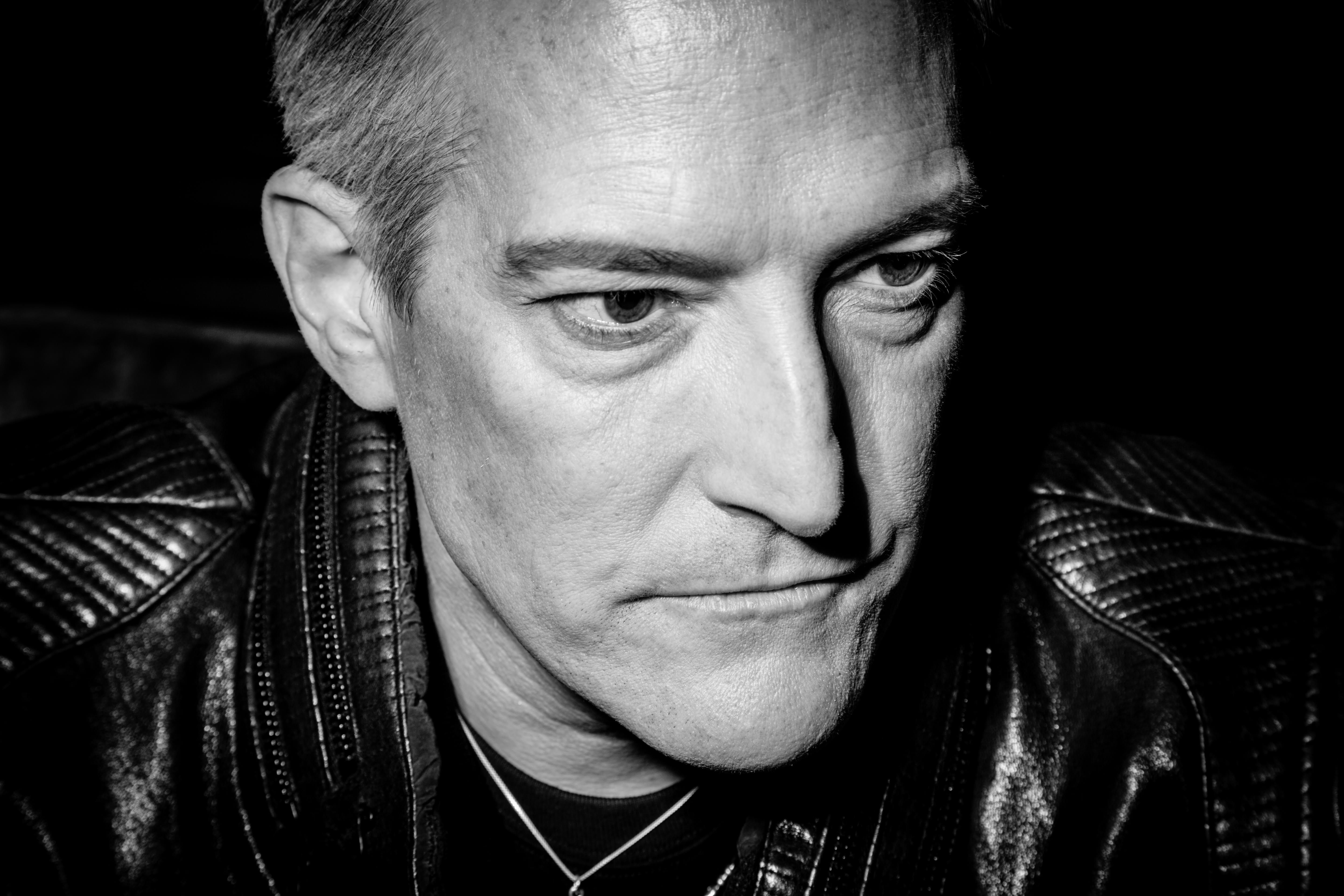
The first person to show me Joy Division was Trent [Reznor]. Trent turned me onto two bands that completely changed my life. One was Pantera, and the other was Joy Division. You know, U2 saw Joy Division and they were like, “We’re changing our sound.” And that’s when they went into the more higher-end guitar sounds … like, they were kind of punk, but fast, happy punk. And then, they hear “Love Will Tear Us Apart” and they were like, “Fuck that … we gotta change it up.” They adjusted their sound and that’s when they did Boy, and they were more “new wave” than they were punk.
At first, when I heard “Love Will Tear Us Apart,” I was like, “I don’t know if I’m digging that.” I had to get used to Ian’s voice for a second. And Trent literally was like, “Why does everybody have to be cool? Why can’t he just be accepted for who he is?” I was like, “Fucking you just said that? The meanest person I have ever met in my life — the most cutting, like meanest son-of-a-bitch I have ever met in my life just said, like, ‘Fucking hold off on ‘em.’”
I listened to it, and the shit is fucking great. He’s like, “Well, it’s New Order.” And I was like, “Really?” And he goes, “Yeah, it’s Joy Division without Ian Curtis. Ian Curtis hung himself.” I was like, “Oh my God!” Admittedly, I was late to the party, because New Order was fucking massive during the ‘80s. But Joy Division were absolutely influential for me.

